
The gold heap leaching process is to crush low-grade gold ore to a certain size, then pile it on a leak-proof bottom mat to spray the cyanide solution from above for getting gold when the solution is infiltrated through the ore layer. Because the investment and production cost of the gold ore heap leaching process is lower than that of the conventional cyanidation method and the process is simple, the gold heap leaching process is widely used in gold mines.
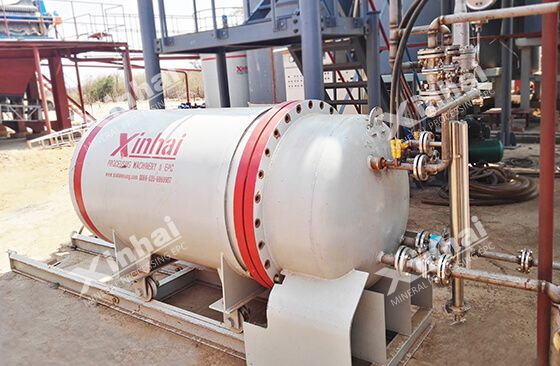
However, there are many factors affecting the heap leaching process in actual production. So poor control of these factors will lead to a decline in production thereby affecting economic benefits. Let's take a look at the factors affecting the gold heap leaching process.
The ore with a loose structure and developed fissures have better permeability, which is beneficial to the penetration and diffusion of the cyanide solution into the ore. The gold in the ore can fully contact the cyanide solution, so the gold leaching speed is fast and the dissolution is sufficient. On the contrary, if the ore structure is dense or the clay content is high, it is not conducive to gold leaching. That will further lead to slow gold leaching speed and a low leaching rate.
In addition, gold ore particle size will also affect the permeability of the ore pile, thereby affecting the gold leaching rate and leaching speed. The particle size of the ore is not as small as possible. If the particle size is too small, the permeability will be poor. If the particle size is too large, the leaching speed will be slower and the leaching rate will be below. Therefore, the ore particle size should be determined according to the heap leaching test.
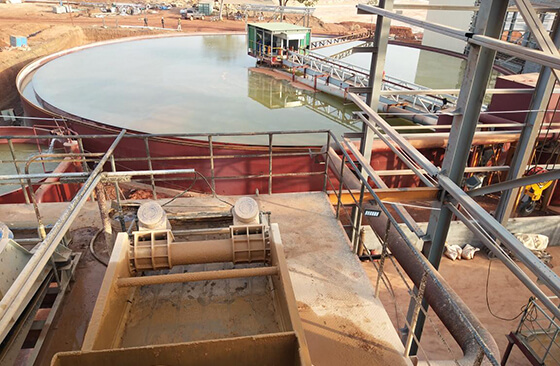
The cyanide concentration can directly affect gold leaching rate and speed. Although higher cyanide concentration is beneficial to accelerate gold leaching rate, other impurity metal ions in the ore will be leach out at the same time. While low cyanide concentration can selectively leach gold out of the ore, but the gold leaching speed and rate are lower.
Therefore, how to determine the cyanide concentration is the key. In actual production, the concentration of sodium cyanide can be divided into early stage, middle stage, and late stage for spraying, which not only saves the consumption of sodium cyanide and impurity ion leaching but also meets the gold leaching rate and speed.
Oxygen plays an important role in the gold heap leaching process. Oxygen is first adsorbed on the ore surface and mass transfer reaction is carried out in gas-solid-liquid. The gold leaching rate is mainly controlled by oxygen diffusion. When the cyanide concentration and other conditions are constant, the gold leaching rate accelerates with the increase of oxygen concentration.
The higher the gold grade in the ore, the higher the oxygen concentration required. In the gold heap leaching process, inter-stage spraying is generally used to supplement oxygen. There are also some methods for directly inserting evenly distributed tubes in the storage yard and charging air or pure oxygen to supplement oxygen. In the production process, the method of supplementing oxygen can be determined according to gold grade.
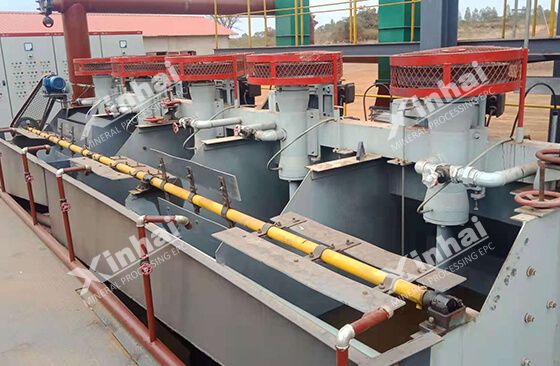
In the cyanide leaching process, as the leaching time increases, the gold leaching rate continues to improve, and the gold leaching rate gradually approaches a certain limit value while the gold leaching rate constantly decreasing during this process.
On the one hand, with the continuous dissolution of gold particles, the number and volume of gold particles are constantly reduced in the leaching process. Thereby the gold reducing dissolution surface results in a gradual decrease of gold leaching speed. On the other hand, with the extension of the leaching time, the diffusion distance between cyanide and the complex cyanide increases. In addition, as the gold dissolves, impurity elements continue to enter the solution, and some impurities will form harmful films on the surface of gold particles affecting the gold dissolution rate.
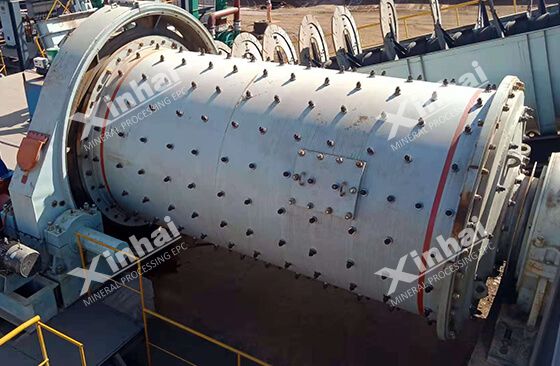
The spray intensity is the number of liters of spray liquid sprayed in one square meter of ore pile per unit time or per ton of ore. Properly increasing the spray intensity is beneficial to the diffusion mass transfer rate between ore and leaching solution for improving the leaching rate and shortening the heap leaching cycle. However, if the spray intensity is increased in the case of poor ore permeability, a large amount of water will accumulate on the ore pile surface, and even ore landslides will occur affecting production. Therefore, it is better to increase the spray intensity under the premise of ensuring that no water accumulates on the mine surface.
In the gold heap leaching process, the control of pH value plays an important role. If the cyanide concentration is too low, it is easy to volatile, and if the cyanide concentration is too high, the activity is low and the leaching speed is slow. Therefore, the pH value should be determined according to the solubility of cyanide in actual production. Commonly used alkali-regulating agents are sodium hydroxide and lime, which are usually used together to ensure the stability of pH value.
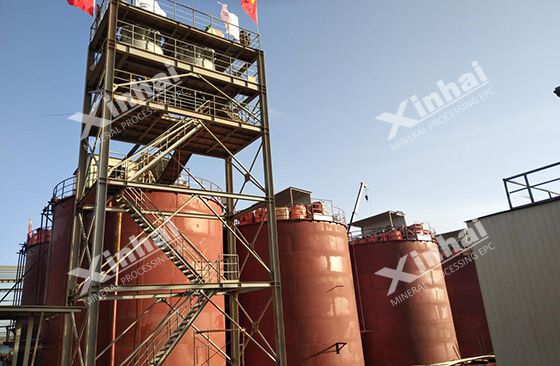
The above factors affecting the gold heap leaching process are mutually restricted and interrelated. Simply adjusting a certain aspect cannot achieve the desired effect. Therefore, it is recommended to select a mineral processing service provider with beneficiation qualification to conduct the mineral beneficiation test first, and determine these influencing factors according to the final beneficiation test report results to achieve a better leaching effect and improve economic benefits.
To find out more about our products and solutions, please fill out the form below and one of our experts will get back to you shortly.